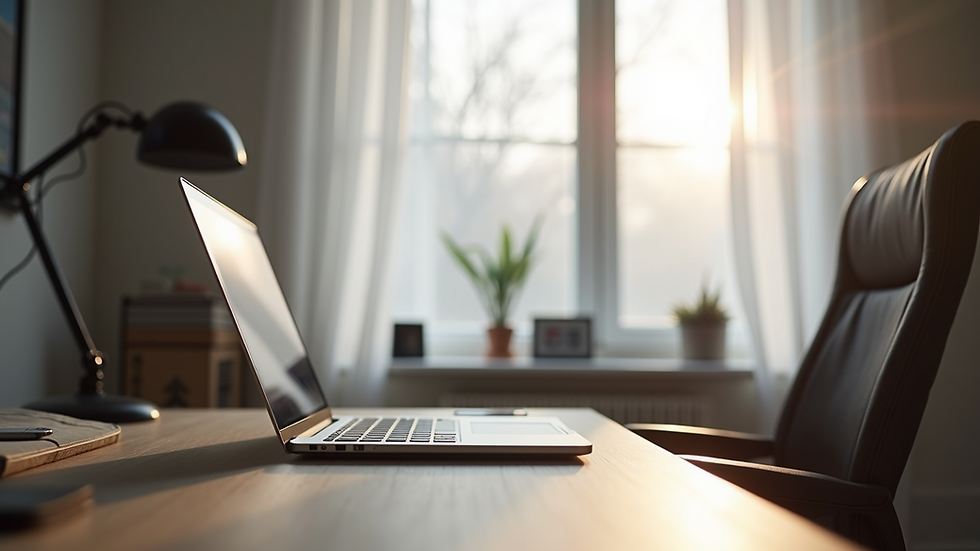Maximizing Your Workspace: Embracing the Freedom of Flexibility vs. the Power of a Dedicated Desk - How to Make the Right Choice for You
- Brandy Lynn Grigg
- May 6
- 3 min read
Are you feeling overwhelmed by the choice between a dedicated desk and a flexible workspace? You’re not alone! In today's world, the way we use our workspace can greatly impact our productivity, creativity, and well-being. Whether you're working remotely, in a co-working space, or enjoying a hybrid model, choosing the setup that suits your lifestyle is essential. Let's explore the pros and cons of both dedicated desks and flexible spaces so you can make the best decision for your work style.
Understanding Dedicated Desks
A dedicated desk provides a consistent, personal space tailored to meet your work needs. Many people thrive on the routine and stability that come with having a place to call their own.
Having a dedicated desk allows for customization that reflects your personality. For example, you can choose an ergonomic chair that supports your back, a desk organizer to keep your materials in order, and decor that inspires you to stay motivated. Studies show that personalized workspaces can increase employee satisfaction by up to 25%.
Moreover, a dedicated desk fosters fewer distractions. In a familiar environment, you can streamline your workflow and maintain focus. According to a study, workers in dedicated spaces report being 30% more productive than those in shared or flexible setups.
However, a fixed workspace can sometimes lead to monotony. If your daily routine lacks variety, a dedicated desk may feel stifling over time, limiting creativity and innovation.
Exploring Flexible Workspaces
Conversely, flexible workspaces bring a dynamic energy that can energize your work life. These setups encourage collaboration and creativity by providing varied environments.
You might find yourself switching between a lounge chair, a standing desk, or a collaborative table. This variety can keep your workday fresh, sparking new ideas and fostering innovation. Data from a recent survey revealed that 70% of employees feel more creative in a flexible work environment.
Flexible spaces also promote social interactions. Working near different individuals can expose you to diverse viewpoints and motivate you to explore new ideas. Casual conversations around the coffee machine can lead to breakthroughs you might not encounter alone.
However, flexibility has its downsides. Constant changes in your surroundings and the presence of others can lead to distractions, making it difficult to maintain focus on important tasks.
Balancing the Pros and Cons
Choosing between a dedicated desk and a flexible space ultimately depends on your unique work style and preferences. If you thrive on structure and familiarity, a dedicated desk may suit you best. Conversely, if adaptability and variety energize you, a flexible workspace might be the right choice.
Imagine your typical workday. Do you visualize brainstorming with colleagues in a lounge area or diving deep into a project at your own desk? By prioritizing your daily tasks and personal comfort, you can enhance your productivity and happiness at work.
Making Your Space Work for You
Deciding between a dedicated desk and flexible workspace is not just a matter of preference; it reflects how you work best. Each option offers distinct benefits. Understanding your work habits will guide you toward the choice that supports your productivity.
As the workspace landscape evolves, remember that your choice does not have to be permanent. You can adapt your environment as your needs change. Embrace the benefits of flexibility while leveraging the strengths of a dedicated desk—after all, it’s all about maximizing your workspace for the best blend of joy and productivity!

The right choice can transform your workspace into a haven of creativity and efficiency. What will you choose? Make your space inspire you!
_edited.png)



Comments